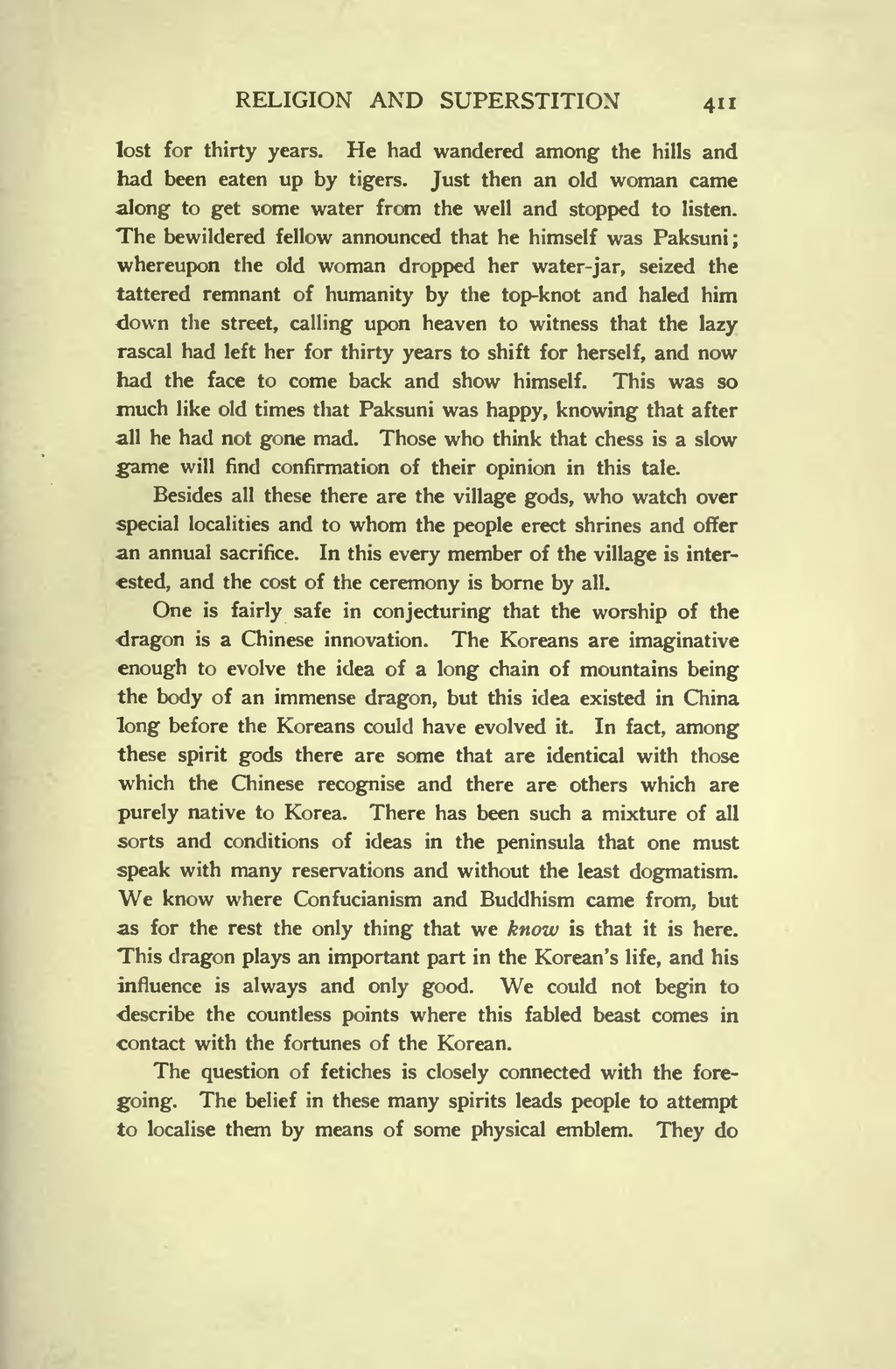lost for thirty years. He had wandered among the hills and had been eaten up by tigers. Just then an old woman came along to get some water from the well and stopped to listen. The bewildered fellow announced that he himself was Paksuni; whereupon the old woman dropped her water-jar, seized the tattered remnant of humanity by the top-knot and haled him down the street, calling upon heaven to witness that the lazy rascal had left her for thirty years to shift for herself, and now had the face to come back and show himself. This was so much like old times that Paksuni was happy, knowing that after all he had not gone mad. Those who think that chess is a slow game will find confirmation of their opinion in this tale.
Besides all these there are the village gods, who watch over special localities and to whom the people erect shrines and offer an annual sacrifice. In this every member of the village is interested, and the cost of the ceremony is borne by all.
One is fairly safe in conjecturing that the worship of the dragon is a Chinese innovation. The Koreans are imaginative enough to evolve the idea of a long chain of mountains being the body of an immense dragon, but this idea existed in China long before the Koreans could have evolved it. In fact, among these spirit gods there are some that are identical with those which the Chinese recognise and there are others which are purely native to Korea. There has been such a mixture of all sorts and conditions of ideas in the peninsula that one must speak with many reservations and without the least dogmatism. We know where Confucianism and Buddhism came from, but as for the rest the only thing that we know is that it is here. This dragon plays an important part in the Korean's life, and his influence is always and only good. We could not begin to describe the countless points where this fabled beast comes in contact with the fortunes of the Korean.
The question of fetiches is closely connected with the foregoing. The belief in these many spirits leads people to attempt to localise them by means of some physical emblem. They do
